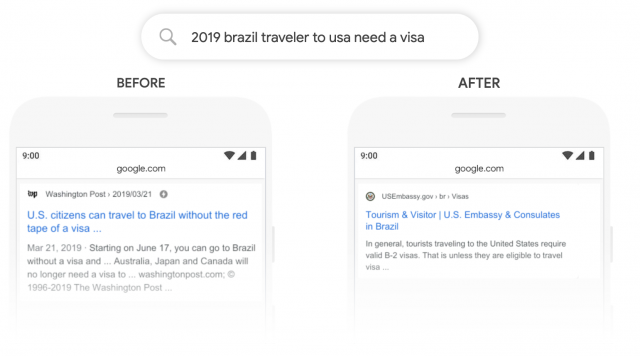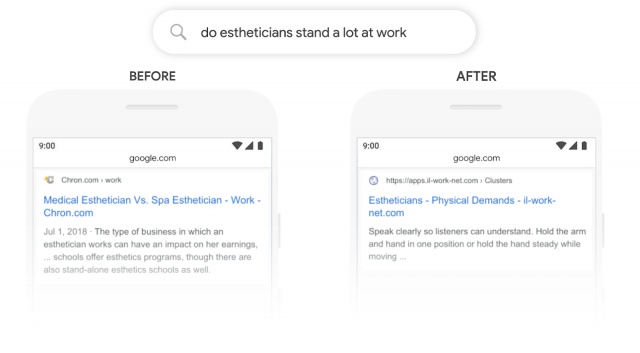Optimize web pages for BERT
On October 25, 2019, Google announced that it will start rewriting search queries with BERT. We will explain what BERT is, how BERT works and how to optimize web pages for BERT.

What is BERT
BERT, everyone is talking about it, but what is BERT anyway? The BERT (Bidirectional Encoder Representations from Transformers) algorithm is a deep-learning algorithm. BERT is actually an advance in NLP (Natural Language Processing). BERT helps a machine (Google) to better understand the language and to distinguish between ambiguities.
BERT does not look at single words but at the words in a context. For example, Google understands the difference between a bank where you sit and a bank where you put money. Google also understands that "putting money in a bank" does not literally mean putting money in a bank building. That means that from now on Google can display better results that look at the content and context of the search query.
What is the BERT update
Basically Google rewrites queries with the BERT algorithm. The BERT update affects approximately 10% of searches. The biggest change will be for queries that were difficult for Google to comprehend because they needed context to understand them.
Below you can see some new results with and without BERT. You can see that BERT has understood the question more clearly and has established relationships in the searches.


How do you optimize a website for BERT
Some say it is impossible to optimize for BERT. BERT rewrites Google searches and you do not have that in your hands. They have a good point but they are not quite right.
With BERT, Google is able to better understand searches. When you use searches better, you can also give better answers. And there is your chance!
Non-relevant with SEO texts written with LSI-like techniques (where combinations of keywords in certain frequencies are used) will become much less relevant with this update because they do not immediately provide the best answer to a search query. Using the correct keywords in your text will therefore no longer be sufficient. The use of the right context will become much more important. So ask yourself what a visitor is looking for on your page and give the visitor the best possible answer.
How exactly do you do that? Google uses an advanced AI to determine what is relevant to a search query. To understand an AI you need an AI. Content intelligence is the ULTIMATE answer to BERT. Content intelligence is an advanced AI that searches for the right context for your article.
Do you want to get started without Content Intelligence? That is of course also possible:
- Do enough research, find out what is interesting for a visitor and always offer an answer to the search question.
- Make sure your text is well written. BERT is very good at understanding text but not infallible. Currently, BERT understands about 92% of all text. Do you write too complicated? Then BERT (and also your visitors) will have difficulty understanding an article.
- Is your article still hard to find after the BERT update? Then look for a new perspective. Take a critical look at whether your article is not too technical or too superficial. A correct combination of readability and content is important for BERT.
- Be helpful and provide examples. This provides a clear context in which Google can post your article.
Technical seo
a/b testing
Above the fold
Alt-tag
Anchor text
Black hat seo
Bounce rate
Broken links
Canonical tag
Cloaking
Content farm
Crawler
Duplicate content
Structured data
Google algorithm
Google Panda
Google penalty
Google penguin
Googlebot
Crawler Traps
Advanced Search operators
Inernal nofollow
Ranking Signal correlation
Google BERT
Linkuilding
Social Media
Website speed
Time to first byte
First Contentful Paint
Inline CSS
Defer JavaScript
Largest Contentful Paint
Resources
Smart WebFont loading for better performance
Icon fonts lazy loading
Improve page rendering with content-visibility
Analytics without Core Web Vitals delay
Self host Google fonts tutorial